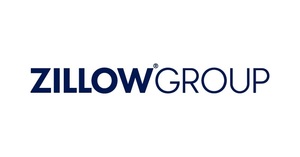Denied and Delayed: How Medical and Student Loan Debt are Limiting Americans' Housing Aspirations
Zillow's latest Consumer Housing Trends report shows how struggling with debt impacts people's housing decisions, and the choices they make as they weigh tradeoffs and concessions
SEATTLE, Sept. 30, 2019 /PRNewswire/ -- Aspiring home buyers with medical debt are more likely than others to be denied a mortgage, while those with student loan debt more often put off buying. That's according to the 4th annual Zillow® Group Report on Consumer Housing Trends, released today.
Personal debt – particularly credit card, student loan and medical – tremendously impacts the type and features of home someone can afford, their timeline for buying a home, their ability to afford an adequate down payment and, ultimately, whether or not they are approved for a mortgage, according to the report, the largest and most comprehensive survey of real estate consumers.
More than two thirds of renters have debt, and about a quarter of renters and home buyers said their debt caused them to be denied either a rental agreement or a mortgage at some point. That impact was most commonly reported by those with medical debt, which has a unique capacity to bust budgets. Nearly two-thirds of renters and 44% of homeowners with medical debt said they couldn't cover an unforeseen $1,000 expense. That's compared to about half of all renters and one-fifth of all homeowners.
Half of renters and 39% of buyers said student debt led them to delay buying a home. And once they do, it impacts how much they are able to put down, ultimately affecting their monthly budgets for decades. Two-thirds of buyers with any kind of debt put down less than 20% when they secure a mortgage, compared with 40% of buyers without debt. The share is even higher (76%) for buyers with student debt. Putting down less than 20%, while fairly common, not only increases monthly payments but also can lead to added expenses if a lender requires private mortgage insurance or other upfront fees to compensate for the added risk.
And for those burdened with debt, financial sacrifices are common – 73% of renters and 68% of buyers with debt said they made at least one financial sacrifice to afford their home, compared with half of renters and 39% of buyers without debt. The most commonly cited lifestyle changes were reducing spending on entertainment, picking up additional work, cutting back on vacation and decreasing spending on technology. Those in debt also are more likely to go over their homebuying budgets.
"When we focus on low unemployment and the strong economy, we often forget that in many ways the rising costs of life can erode most of those gains," said Skylar Olsen, Zillow's director of economic research. "Health care has never been more expensive. Getting a college degree, a path more likely to lead to economic success for those able to get through it, has never been more expensive. U.S. housing values and rents have never been more expensive. While incomes, both at the high and low end, are growing, the pace hasn't kept up with those crucial life expenses. That's fact and Americans are feeling it."
Type of buyers' debt |
Said debt was the reason for a mortgage or rental deniali |
|||||
Credit card |
42% |
Student loan |
Credit card |
Medical |
||
Student loan |
20% |
Buyers |
28% |
22% |
38% |
|
Medical |
16% |
Renters |
24% |
26% |
39% |
|
None of these |
44% |
|||||
Net: any debt |
56% |
|||||
The 2019 Zillow Group Report on Consumer Housing Trends is the 4th annual largest-ever survey of U.S. home buyers, sellers, owners and renters, and asked 13,000 U.S. household decision makers aged 18 and older about their homes – how they search for them, pay for them, maintain and improve them, and what aspirations and challenges drive their decision. Data from the full report is available for free to the public at www.zillow.com/report, and custom analyses are available to journalists by emailing [email protected].
About Zillow
Zillow® is transforming how people buy, sell, rent and finance homes by creating seamless real estate transactions for today's on-demand consumer. Zillow is the leading real estate and rental marketplace and a trusted source for data, inspiration and knowledge among both consumers and real estate professionals.
Zillow's proprietary data, technology and industry partnerships put Zillow at nearly every major point of the home shopping experience, helping consumers search for and get into their new home faster. Zillow now offers a fully integrated home shopping experience that includes access to for sale and rental listings, Zillow Offers®, which provides a new, hassle-free way to buy and sell eligible homes directly through Zillow; and Zillow Home Loans, Zillow's affiliated lender that provides an easy way to receive mortgage pre-approvals and financing. Zillow Premier Agent instantly connects buyers and sellers with its network of real estate professionals to help guide them through the home shopping process. For renters, Zillow's innovations are streamlining the way people search, tour, apply and pay rent for leased properties.
In addition to Zillow.com, Zillow operates the most popular suite of mobile real estate apps, with more than two dozen apps across all major platforms. Launched in 2006, Zillow is owned and operated by Zillow Group, Inc. (NASDAQ:Z and ZG) and headquartered in Seattle.
Zillow and Zillow Offers are registered trademarks of Zillow, Inc.
i Among those who said they have each type of debt.
SOURCE Zillow

Related Links
WANT YOUR COMPANY'S NEWS FEATURED ON PRNEWSWIRE.COM?
Newsrooms &
Influencers
Digital Media
Outlets
Journalists
Opted In






Share this article